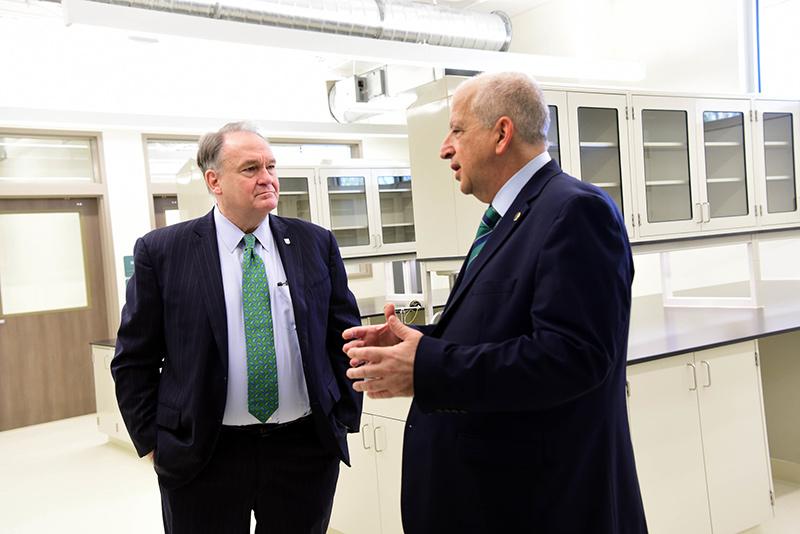Tulane National Primate Research Center expands its laboratory capacity
The Tulane National Primate Research Center (TNPRC) has expanded its laboratory capacity by 10,000 square feet with a $6 million renovation of its former surgical facility. The university-funded renovation will accommodate up to seven new investigators with four state-of-the-art biosafety level-2 laboratories. The largest among them is a 2,000-square-foot lab that will provide open, shared space for several investigators and features six biosafety cabinets in an adjoining tissue culture room and multiple benches.
The newly renovated space also includes private faculty offices, a designated space for postdoctoral researchers, a large conference room and open workspace for up to 30 additional research support personnel. The center’s highly productive flow cytometry core, which analyzes and characterizes cell samples for investigators, will also move into the new space.
“Adding 10,000 square feet of state-of-the-art laboratory and office space is an immense boon to our research program,” said Jay Rappaport, director of the TNPRC. “We are grateful to the university for investing in our work with such an incredible facility that will help us continue to attract world-class researchers to our program.”
Tulane President Mike Fitts and Senior Vice President for Academic Affairs and Provost Robin Forman joined Rappaport for the ribbon-cutting ceremony of the new space on Friday, Feb. 21.
“The university had the vision for this new laboratory space years ago and now we can see what a brilliant decision it was to invest in this facility, this research and all of you,” said Fitts. “Seldom does anyone get to work at a place that literally changes the world and saves lives, and that's what you get to do here. The world is a better place because of what the primate center is involved in, and we are proud to stand behind your work.”
Tulane National Primate Research Center (TNPRC) improves human and animal health through basic and applied biomedical research. As one of the seven National Primate Research Centers funded by the National Institute of Health, the TNPRC is committed to discovering causes, preventions, treatments, and cures that allow people around the world to live longer, healthier lives. Primary research interests include developing vaccines, treatments and diagnostic tools for infectious diseases such as AIDS, Lyme disease and tuberculosis. Learn more about the TNPRC at www.tnprc.tulane.edu.


